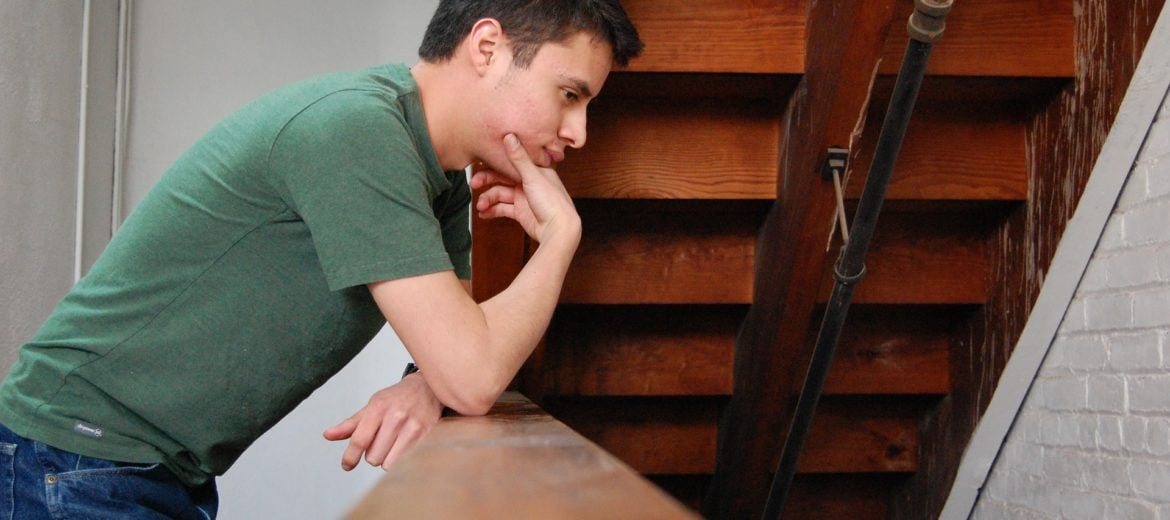It had been a few weeks since Anshul Khanna had joined the gym when he felt discomfort in his lower abdomen. When he instinctively put his hand on his abdomen, he thought he felt something poke out.
“At first I dismissed it as my muscles getting tired because I was working out too hard,” recalled Anshul.
He realised he might be wrong when a few days later the pain got worse while lifting weights.
Anshul was diagnosed with ventral hernia after he consulted with Dr. Amarchand S Bajaj, Senior Consultant, General Surgery at Sitaram Bhartia Hospital, Delhi.
“Many people, like Anshul, tend to ignore the bulge or swelling if it is small or can be pushed back. This is known as a reducible hernia,” said Dr. Bajaj.
“We wanted to help Anshul understand the importance of hernia repair.”
Here are some doubts Anshul had regarding his condition and diagnosis –
What does ventral hernia mean?
“A ventral hernia is a defect which occurs at a site where the muscles of the abdominal wall get weakened and the internal organs like bowel loops and omentum (fatty content) push through.”
Your physician will refer you to a general and laparoscopic surgeon if a hernia is suspected. After performing a clinical examination and noting your symptoms, the surgeon may ask you to do an abdominal ultrasound or CT scan to evaluate further.
There are different ventral hernia types depending on the location–
- Umbilical hernia – This is one of the most common types of hernia that appears at the navel or belly button area.
- Epigastric hernia – Such a hernia involves fatty tissue poking through your abdomen, anywhere from below the breastbone to the belly button.
Read: Protrusion After Surgery? Could Be Incisional Hernia!
Anshul’s ventral hernia was categorized as an epigastric hernia as it appeared below his ribcage.
What causes a ventral hernia?
Hernias result when the abdominal content force through a weak abdominal wall.
This weakening could occur from reasons such as:
- Area around an incision site from previous surgery
- A birth defect
- Strain due to coughing, straining while passing urine
In some cases, a ventral hernia can occur due to increased tension in the abdominal area or raised intra-abdominal pressure.
“It is possible that Anshul’s hernia appeared because his gym routine was putting unnecessary pressure unknowingly on a weakened site of his abdomen.”
It is important to keep in mind that not every person that goes to the gym will develop a ventral hernia.
Who is at risk of getting this type of hernia?
You are more at risk of developing a ventral hernia with the following factors –
- Obesity
- Increase in abdominal pressure caused by chronic cough, chronic constipation, straining while urinating (for eg. in patients suffering from prostate problems)
- Frequently lifting or pushing heavy objects
- History of previous hernias
- History of abdominal surgeries
What are the symptoms of a ventral hernia?
You should keep an eye out for these symptoms of a ventral hernia:
- Discomfort or severe pain in the abdomen
- Swelling or bulge that increases when coughing, straining due to constipation
- Nausea or vomiting
- Distention of abdomen and not being able to pass flatus (gas) or faeces
You should consult a doctor if you experience these symptoms. Some people may feel no symptoms.
In Anshul’s case, he experienced discomfort and swelling in the abdominal area.
After understanding the meaning of hernia, Anshul wanted to know if the hernia would affect his day-to-day life if left untreated.
How serious is a ventral hernia?
“If you keep ignoring your symptoms, your hernia will be at greater risk of becoming irreducible and trapped. This may lead to an obstructed or strangulated hernia,” counselled Dr. Bajaj.
“Timely treatment for your condition should be done with ventral hernia surgery.”
“Do ventral hernias have to be repaired? How can they be fixed?” he asked. His immediate concern was on the treatment options for his condition.
How is a ventral hernia treated?
“A ventral hernia can only be treated through surgery and needs to be repaired before the condition worsens.”
“There is no non-surgical or medicinal treatment for hernia.”
Anshul, however, seemed unsure about getting surgery as he was scared.
The doctor explained that there was no reason to worry as the operation is done through a minimally invasive technique which uses smaller and fewer cuts.
Laparoscopic Hernia Repair
“Also called keyhole or laparoscopic surgery, this operation is more specialized than open ventral hernia repair as it significantly reduces the size of cuts and incisions that need to be made.”
Laparoscopic repair involves the use of dual-mesh which prevents post-op adhesions of bowel.
“Nowadays, hernia repair usually includes medical mesh which covers the area of defect and the surrounding weakened tissue. The mesh is fixed to the intra-abdominal wall with the help of sutures or tackers.”
In the hands of experienced surgeons, laparoscopic ventral hernia repair with mesh reduces the chances of recurrence.
Open Hernia Repair may be suggested for a few patients who are medically not fit for general anesthesia, which is the basic requirement for laparoscopic surgery.
How long does it take to recover from ventral hernia surgery?
Minimally invasive or laparoscopic hernia repair promises a faster recovery time and shorter hospital stay.
As compared to an open surgery, post-op pain is also less after laparoscopic repair. Patients can resume daily activities within a couple of days as well.
Anshul understood that delaying his surgery could end up worsening his condition causing further complications.
He asked how he should prepare for his ventral hernia repair.
How should I prepare for surgery?
Before Surgery
When you are mentally prepared for surgery, you should:
Undergo a pre-anesthetic checkup
In this visit, the anesthetists take a detailed history and ask about any allergic reactions to the types of anesthesia.
Start or stop certain medication
Discuss with your doctor whether any medication you are currently taking needs to be discontinued before surgery.
The Day of Surgery
You will be asked to fast 6-8 hours before the operation.
“Make sure you inform us if you feel unwell on the day of the surgery. “
“Bathe yourself and wash your hair with shampoo before coming to the hospital. Keep your finger and toe nails short.”
Bring all necessary documents required for admission.
After Surgery
You should refrain from lifting heavy objects right after surgery. You can resume light activity such as cooking or walking.
You may experience some pain for which you will be advised pain killers.
With all the details about surgery and how to prepare, Anshul understood that ventral hernia surgery was the only way to get permanent relief.
He scheduled his pre-anesthetic check up and decided on a date for the surgery with the doctor.
Conclusion
After a successful surgery, Anshul was on his feet the same day after the surgery and was discharged the next day.
“I am glad I treated the hernia early and got my operation done. I was feeling better within a few days and my symptoms were also gone!” said Anshul at a follow-up consultation.
Learn more about Dr Amarchand S. Bajaj.
This article was written with Dr. Amarchand S. Bajaj‘s editorial inputs, in order to provide information to those seeking treatment for hernia. This article was written in October 2018 and has been updated in December 2020 for comprehensiveness.

Medically Reviewed by Dr. Amarchand S. Bajaj
MBBS, Govt. Medical College, Nagpur (1997), M.S. (General Surgery), Govt. Medical College, Nagpur (2003)
Come in for a consultation with Dr. Amarchand Bajaj! Call us on +918800816657 to book your appointment.

